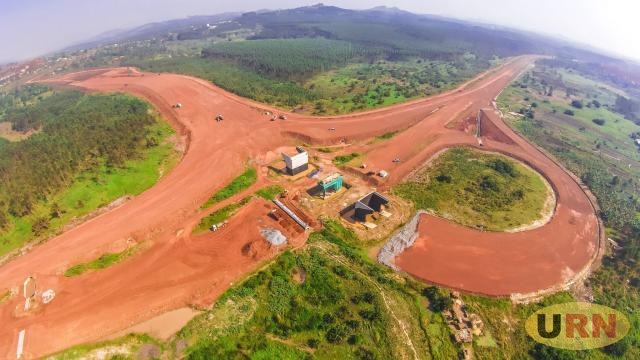
Mpigi, Uganda | THE INDEPENDENT | A government audit on the progress of works on the Busega-Mpigi Expressway has shed fresh light on the delays of the project.
Last week, the Ministry of Works and Transport, which confirmed that the new completion deadline was 2027, gave complexities in land compensation, limited resources and COVID-19 as the major causes for the four-year delay of the 23-kilometre project.
The project, implemented by CCECC (China Civil Engineering and Construction Corporation), was initially planned for 151 Million Dollars (547 Billion Shillings then), with funding from the African Development Bank and African Development Fund.
The ministry puts the work progress at about 45 percent.
However, the report by the Office of the Auditor General 2024 shows that there has been a significant escalation of costs as well as payment shortfalls, mainly coming from inadequate preparation.
“Busega-Mpigi Expressway project is facing significant shortcomings in technical preparation and funding management,” says the report, adding that the cost has since more than doubled.
Initially contracted at 547.5 Billion Shillings, which the report says was reached without adequate detailed designs, subsequent revisions have raised the project cost to 1.35 Trillion Shillings by May 2023.
Consequently, by May 2024, the original contract funds for civil works were fully depleted, and, the OAG says that by then, physical progress was at only 40.86 percent.
As if that was not enough, the works so far completed at the time and certified, presented payment areas of 30.8 Billion Shillings.
These accumulations pose “risks of delayed payments and legal claims” by the contractor, according to the report.
As of July 2024, progress had reached just 42.28 percent, falling short of targets, with the completion date extended to September 2027.
With an addition of 2 percent per month, there is fear that even the new deadline might not be met.
“Delayed payments, unplanned costs, and funding shortfalls threaten timely completion and cost containment,” says the AG, advising the government to quickly look for resources to expedite the works.
“I advised the Accounting Officer to expedite efforts to secure additional funding to meet contract obligations and reduce risks of payment delays and contractor accumulation of interest claims on delayed payments.”
Accumulation of delayed payments as well as escalation of costs has been one of the main impediments to the progress of road and bridge works, by the Uganda National Roads Authority (UNRA), which has recently been reintegrated into the Ministry.
This trend has seen many road projects either slow down or temporarily suspended by the contractors as they await the disbursement of funds by the government.
For example, under the Integrated Transport Infrastructure and Services (ITIS) programme, as of June 30, 2024, arrears amounting to 798.97 Billion Shillings remained unpaid for road and bridge construction projects.
These arrears include 789.48 Billion under UNRA and 9.49 Billion under the Ministry of Works and Transport.
“The above indicates inadequate budgeting practices and exposes the Government to potential litigation and financial penalties due to delayed payments,” says Edward Akol.
For instance, UNRA, the report shows, incurred interest charges totalling 27.66 Billion Shillings on overdue Interim Payment Certificates (IPCs) that were not settled within the agreed timelines.
These delays resulted in an average daily interest payment of 75 Million Shillings and a monthly loss of 2.305 Billion.
These interest costs were unbudgeted for during the financial year and diverted critical funds away from UNRA’s core mandate of executing road construction projects, concluded Akol.
*****
URN
 The Independent Uganda: You get the Truth we Pay the Price
The Independent Uganda: You get the Truth we Pay the Price



